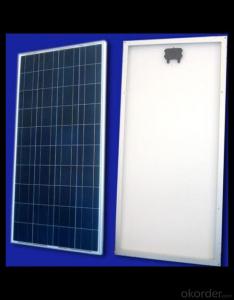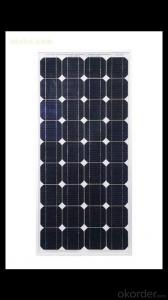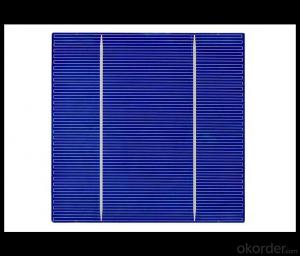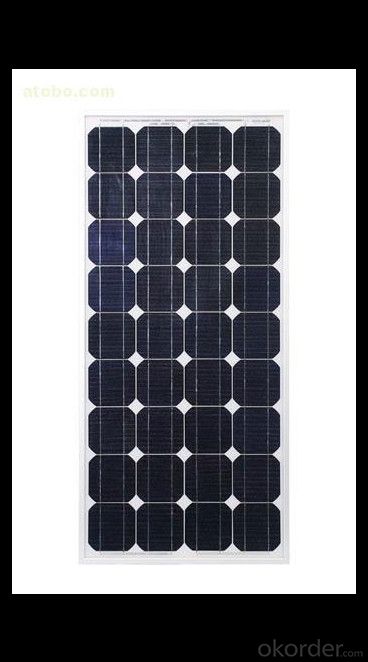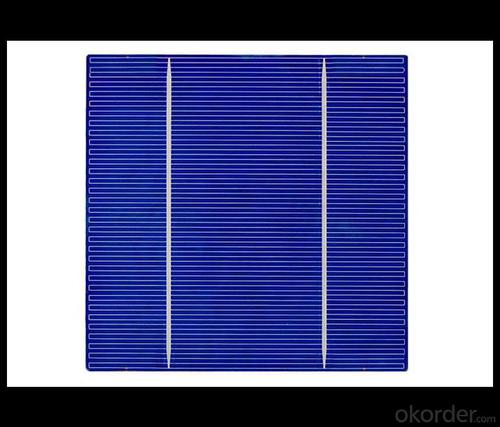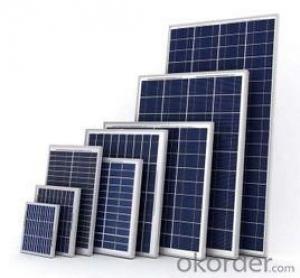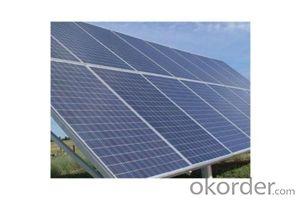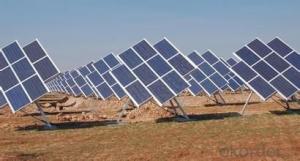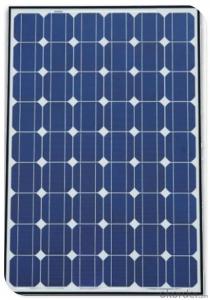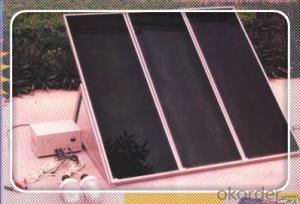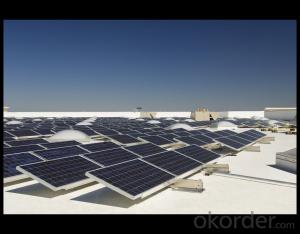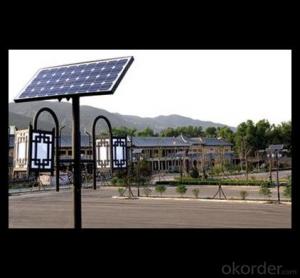Residential Solar Panels Houston - 310W Direct Factory Sale Price 260-320Watt Solar Panels
- Loading Port:
- China main port
- Payment Terms:
- TT OR LC
- Min Order Qty:
- 10000 watt
- Supply Capability:
- 100000 watt/month
OKorder Service Pledge
OKorder Financial Service
You Might Also Like
Specification
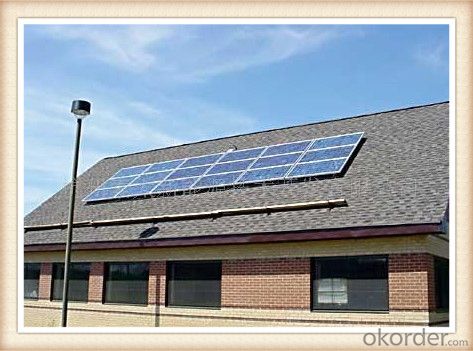
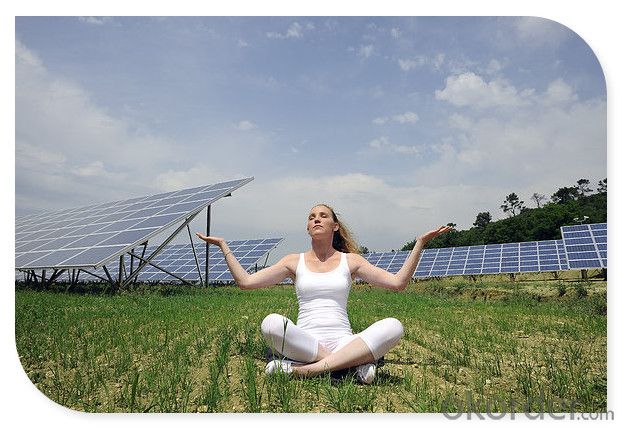
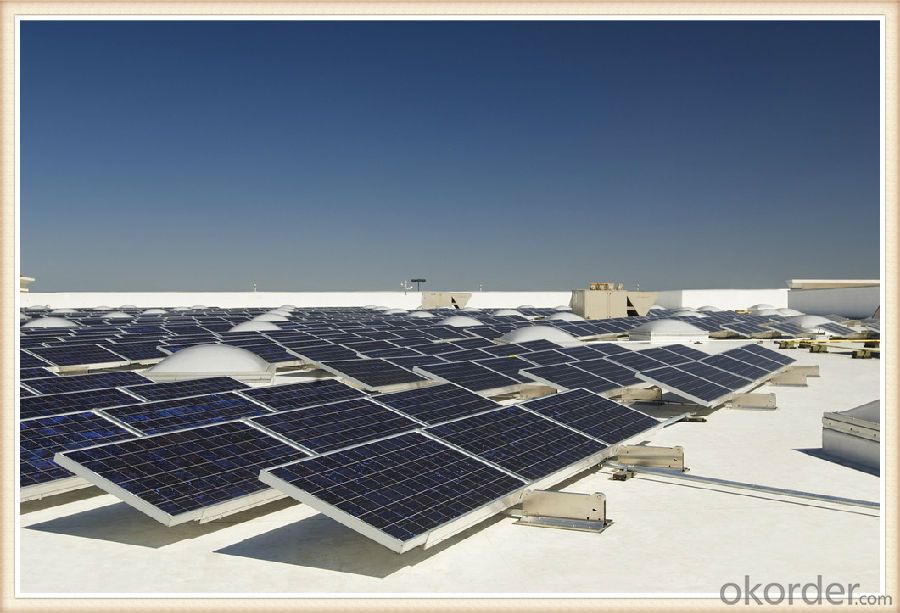
Solar Module Introduction
Solar modules use light energy (photons) from the sun to generate electricity through the photovoltaic effect. The majority of modules use wafer-based crystalline silicon cells or thin-film cells based on cadmium telluride or silicon. The structural (load carrying) member of a module can either be the top layer or the back layer. Cells must also be protected from mechanical damage and moisture. Most solar modules are rigid, but semi-flexible ones are available, based on thin-film cells. These early solar modules were first used in space in 1958.
Electrical connections are made in series to achieve a desired output voltage and/or in parallel to provide a desired current capability. The conducting wires that take the current off the modules may contain silver, copper or other non-magnetic conductive transition metals. The cells must be connected electrically to one another and to the rest of the system. Externally, popular terrestrial usage photovoltaic modules use MC3 (older) or MC4 connectors to facilitate easy weatherproof connections to the rest of the system.
Specification
Model Type | |
Peak Power-Pmax(W) | 5-200W |
Open Circuit Voltage-Voc(V) | 44.2 |
Maximum Power Voltage-Vmp(V) | 36 |
Short Circuit Current-Isc(A) | 5.4 |
Maximum Power Current-Imp(A) | 5 |
Maximum System Voltage | 1000V DC |
Maximum Series Fuse Rating | 10A |
Power Tolerance | -1~+3% |
Temperature Coefficients of Pmax | -0.45%/℃ |
Temperature Coefficients of Voc | -0.348%/℃ |
Temperature Coefficients of Isc | 0.031%/℃ |
Nominal Operating Cell Temperature | 44.5±2℃ |
Standard Testing Condition(STC) | Irradiance:1000W/m²;Temperature:25℃;AM=1.5 |
Qualification Test Parameters | |
Operating Temperature | -40℃~+85℃ |
Storage Temperature | -40℃~+85℃ |
Pressure Bearing | ≥5400Pascal/m² |
Wind Bearing | ≥5400Pascal/m² |
Mechanical Characteristics | |
Cell Size | Mono 125*125mm±0.5 |
No.of Cells | 72pcs(6*12) |
Dimension | 1580*808*40mm |
Weight | 15.5Kg |
Glass | 3.2mm High Transmission,Low Iron |
Frame | Anodized Aluminum Alloy |
Junction Box | IP65Rated |
Internal Diodes | 3 Bypass Diodes |
Cable | 1*4.0mm² Length 900mm |
Images
Packing & Shipping:
We have rich experience on how to pack the panels to make sure the safety on shipment when it arrives at the destination.
The normal size is packed by 25pcs/ carton / pallet. Paper carton for FCL shipping and wood carton for LCL shipping.
Features
1.High reliability with guaranteed -3% to +5% power output tolerance, ensuring return on investment
2.High conversion efficiency based on leading innovative photovoltaic technologies
3.Withstands high wind-pressure and snow load, and extreme temperature variations
4.Attractive appearanceUnique frame design, high mechanical strength, and easy Installation
Warranty:
For c-Si panel: 25years output warranty for no less than 80% of performance, 10 years output warranty for no less than 90% of performance. Free from material and workmanship defects within 5 years.
For a-Si panel: 20 years output warranty for no less than 80% of performance, 10 years output warranty for no less than 90% of performance. Free from material and workmanship defects within 2 years.
•100% product quality protection
•100% on-time shipment protection
•100% payment protection for your covered amount
FAQ:
(1)What price for each watt?
It depends on the quantity, delivery date and payment terms.
(2)What is your size for each module? Can you tell me the Parameter of your module?
We have different series of panels in different output, both c-Si and a-Si. Please take the specification sheet for your reference.
(3)Can you provide the peripheral products of the solar panels, such as the battery, controller, and inverter? If so, can you tell me how do they match each other?
Actually we are only manufacturer of solar panels, but we could try to source them for you in China if you need. We could provide you an optimal system design to instruct you how to install.
(4)Do you have the CE, TUV, UL Certification?
We’ve already passed all the tests, and any certificate is available.
(5)Have you ever sold your products to companies in my country?
Of course, we have customers in all general PV markets, but I think we should expand our market share along with the market growth.
(6)When did your company set up? You are a new company, how can I believe your quality?
We entered into Solar PV industry in 2005, now we have several plants in manufacturing of a-Si and c-Si panels, and our capacity is 220MW per year. Till now we have already passed all the tests by authorized laboratories, e.g. TUV, VDE, UL.
(7)Can you help us install the module if we cooperate with you?
We haven’t entered into installation sector, but we have the plan in near future.
(8) How do you pack your products?
We have rich experience on how to pack the panels to make sure the safety on shipment when it arrives at the destination.
(9) Can you do OEM for us?
Yes, we can.
(10)Can we visit your factory?
Surely, I will arrange the trip basing on your business schedule.
- Q: Can solar panels be used in areas with high levels of rainfall?
- Yes, solar panels can be used in areas with high levels of rainfall. While excessive water exposure can affect the performance of solar panels in the short term, modern solar panels are designed to withstand different weather conditions, including rain. Proper installation and maintenance can ensure their efficiency and longevity, even in areas with high rainfall.
- Q: Do solar panels work during a power outage?
- No, solar panels do not work during a power outage unless they are connected to a battery storage system.
- Q: What direction do solar panels usually point? North? East? South? West?
- I can't believe how many people posted wrong answers to this. Where are they looking? What are they thinking? In the northern hemisphere, solar panels are ALWAYS oriented due south. In the southern hemisphere, face them due north. I am typing on a computer that is running on a solar electric system that supplies my whole house. Been this way for years. So it works.
- Q: Online stores selling solar photo-voltaic generation kits gives specs indicating the power generation capability of the system. For example, Solar World Grid-Tie Solar Electric System with 245W Panels PV Powered PVP2000 Inverter, .2 to 2.4 kW. This seems to indicate that the system can generate .2 to 2.4 kW. Is that per day? Per month? I'm trying to calculate the return on investment, but can't because I don't know how much power a system such as this will generate in a month.
- There okorder Why pay thousands of dollars for solar energy ($27,000 average cost) when you can build your own solar panel system for just a fraction of the retail cost. You can build a single solar panel or you can build an entire array of panels to power your whole house. Some people are saving 50% on their power bill, some people are reducing their bill to nothing. But what’s most impressive is that just by following these instructions some are even making the power company pay them!
- Q: A local air conditioning company is advertising combining their (newly installed) central air conditioning system for homes, with roof solar panels. They say that the combination MAY reduce your electric bill. Nothing I can see to back-up their claims. Hmmmmm. And they offer, if you can get it; central air conditioning that runs on natural gas. Again, possibly cheaper than using electricity.Has any one actually tested to find out if solar panels and/or natural gas DOES, or DOES NOT save you any money to make it worth the bother?
- Don't do it! It takes years to get your money back. Your better to put the money into insulation and or buying geo thermal unit. I knew someone who install solar panels on his roof to generate hydro and he didn't notice much of a change on his hydro bill and then he had roof problems . Central air units in last 2 years have become very efficient . Almost half the hydro of ones 0 years ago. If you can afford buy a geo thermal unit. It uses the heat of the ground in the winter 2 heat your house during the winter and the coolness of the ground to cool your house. They aren't cheap though. If you plan on living in your house for more than 0 years and have the room in the yard to install then go for it. No how you slice it though AC units use way more hydro than solar panels can produce. You would need about half a football field with a huge battery storage system to run a AC unit. When a company states you might on hydro I would stay away. Also remember they do not tell you about the costs of the upkeep on the solar panels and converter and batteries
- Q: I am looking to get some solar panels for my home to just power a few lights, a fan or two. I have a generator but I want that only to power the fridge and maybe some other small stuff for convenience.But mainly want the solar panels for the lights and fans. Any one have an idea of how about I go to figuring this all out? Should I call a contractor or anything?
- depends on what light bulbs you have in watts.depends on how many you want on. for the power equation you take P which equals watts x I which equals amps and E which equals volts and you multiply the amps and the volts together to get the watts which the solar panel is generating. for example if you had 7 60 watt light bulbs you would need 420 watts generated. which if you got 50 watt panels each you would need 9 panels. and for what your talking about if you want the stuff to work when the power goes out you are going to need an inverter. not to be confused with a grid ti inverter. and a few batteries i recommend deep cycle batteries that are meant for solar panels. depends on what fan you have.
- Q: Do solar panels require regular inspections?
- Yes, solar panels do require regular inspections to ensure optimal performance and identify any potential issues or maintenance needs.
- Q: There are so many solar panels and kits it is very confusing. I need to know what exactly I would need if I had an underground home with no electricity. I want to be totally off the grid with solar power. Someone please explain to me in simple terms what exactly I need. Maybe give me a link to the right kit for me. Also are they easy to install? Are there instructions that I need to download?Thank you
- I okorder
- Q: I got an 8v solar panel for a project today, the only problem is that it came without any wires attached to it. Now i don't know what type of wires i should use and if i should solder them on or if i should use epoxy instead. Can anybody help me out?
- You might want to be careful about soldering. Some panels can be easily damaged by excess heat. Check the manufactures website for recommended attachment methods. Solder tape or conductive epoxy might be better. If you do not have such things already, a good idea might be to take it into a TV repair shop or electronic hobbyist store. Some folks are kind enough to do it for you for free.
- Q: what percentage of sunlight is converted into electrical energy in a solar panel?
- Thin film panels are typically 5-7% efficient. Crystalline panels are typically 0-4% efficient. Both types of panels will degrade overtime, so the efficiencies above are only for new panels.
Send your message to us
Residential Solar Panels Houston - 310W Direct Factory Sale Price 260-320Watt Solar Panels
- Loading Port:
- China main port
- Payment Terms:
- TT OR LC
- Min Order Qty:
- 10000 watt
- Supply Capability:
- 100000 watt/month
OKorder Service Pledge
OKorder Financial Service
Similar products
Hot products
Hot Searches
